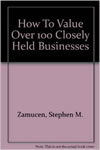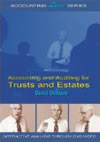All Articles
Accident Prevention & Safety
Gems & Jewelry
Advertising
HVAC - Heating, Ventilation, Air Conditioning
Appraisal & Valuation
Hyperbaric Medicine
Arms - Guns - Weapons
Industrial Precision Cleaning
Banking
Legal Issues
Biomechanics
Life Expectancy - Life Care Planning
Boating
Maintenance
Branding - Brand Management
Medical - Medicine
Business Development
Medical Physics
Business Intelligence
Medicare - Medicade - Health Insurance
Cancer & Oncology
Metals & Plastics
Casinos - Gambling - Gaming
Nonprofit Organizations
Child Welfare
Nursing
Computer Forensics
Obstetrics - Gynecology (OBGYN)
Crime Scene Investigation
Optometry
Domestic Violence
Organic Chemistry
Economics
Physician Assistants
Electrical - Electrocution
Plastic / Reconstructive / Cosmetic Surgery
Elevators - Escalator - Automatic Doors
Regulations and Codes Standards
Ergonomics
Robots & Robotics
Fall Protection Solutions / Confined Spaces Safety
Sexual Abuse - Molestation - Harassment
Food & Beverage
Structured Settlements
Forgery & Fraud
Toxicogenomics
Foster Care / Foster Home
Vocational Rehabilitation And Counseling
Fuel Systems
Wilderness Emergency Medicine
More...
expert witnesses
Keywords
Category
Name
Company
Address
State
*Enter State Names or Abbreviations. Use space to separate multiple states e.g. CA Washington NY
Country
All Articles
Accident Investigation & Reconstruction
Forgery & Fraud
Accounting
Fuel Systems
Antitrust
Insurance Coverage Analysis
Applied Mechanics
Intellectual Property
Archaeology - Archeology
International Trade
Architecture
Investigation & Surveillance
Branding - Brand Management
Law Enforcement
Business Intelligence
Lubricants
Business Management
Market Research
Commercial Diving
Marketing
Computer Forensics
Materials
Corrosion
Medical Devices / Inventions
Crisis Management
Nursing
Data Analytics and Visualization
Oil & Gas
Dental - Dentistry
Optometry
Design
Pharmacy & Pharmacology
Disability
Premises Liability
Dram Shop Liability
Radiology
Elder - Geriatrics
Remote Sensing Image / Satellite Data Analysis
Emergency Medical Services (EMS)
Research Methodology
Exercise Equipment
Scuba Diving
Eyewitness Testimony
Search Engine Optimization (SEO)
Family Issues
Security
Feng Shui
Statistical Analysis
Foot / Ankle Surgery
Telemedicine - Remote / Virtual Medicine
More...
Trusts Estates Investment Management Fiduciary Expert Witness John Rodgers
This Member is NOT currently an ACTIVE member.
John Rodgers & Associates
John A. Rodgers, III, Esq.
Please Contact Us for more information.

Related areas of expertise
Featured resources
Wilderness Medicine
by Paul S. Auerbach
How To Value Over 100 Closely Held...
by Stephen M. Zamucen
Accounting and Auditing for Trusts...
by David Ostrove
Follow us










